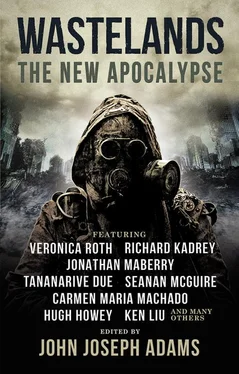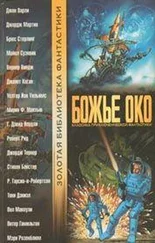Kate gardened and we had half a dozen chickens. We had close friends, Ted and Esteban, and we’d take eggs and garden vegetables over to their place and make dinner. They had huge trees in their backyard and a pool. The electricity would go out and we’d sit in the dark and complain about mosquitos and drink beer.
I was coming home from work one day and stopped at a stoplight, as one does, and someone wrenched open the driver’s-side door of the Prius. It was a very angry man with a blue bandanna covering half of his face. He’d have looked like some kind of old movie bandit if he hadn’t also been wearing sunglasses. He was waving around a gun and screaming at me.
He yelled “Get out of the car!” at some point.
Back in the day, if you were on Facebook or Tumblr, and you were a woman, you probably got safety tips in your feed. I had read something about whether you were safer in a car or out of it although I think it was about getting into a car with someone who was armed—like someone who was going to get you into the car and take you somewhere. I remember it seemed vitally important to know whether I was safer in the car or out of it but I couldn’t remember and in the end I scooted across the middle console and out the passenger’s-side door.
He got in the car and drove off. My laptop was in the back seat. I had the key fob in my pocket, so he didn’t have that.
The police came and we went down to the police station and I told them everything. Then Kate took me home in a Lyft and Esteban made me a precious vodka martini (vodka was expensive) and everyone came over and sat around, commiserating. The electricity went out and we lit a couple of candles. I remember people brought food. Ted said he could take me to work the next day. Another neighbor volunteered to pick me up at work—it wasn’t that far out of her way.
I was genuinely shaken. I don’t want you to think that I wasn’t. But it was such a pleasure to be the center of everyone’s concern and attention. As the city vibrated apart, we worked to take care of each other.
In Houston I was studying big viruses. Everyone was, all over the country. My head of research, an asshole named Mark Adams, said it was like the nineties when everybody got sucked into the Human Genome Project. Careers were stagnant for a decade, he said.
Careers. Imagine worrying about a career.
Imagine having deep discussions about things at conferences in Atlanta or Baltimore. Big viruses were different from regular viruses. They didn’t just take over a cell and destroy it to make new viruses. They took over a cell and turned it into a virus factory, pumping out viruses at an order of magnitude higher. They had already been linked with a meningitis outbreak in India.
I was doing work on ATP, the energy transfer mechanism in cells, and how the virus co-opted the system. I was at a conference and ended up sitting next to a guy named Zhou Limin from the University of Science and Technology of China in Hefei. We’d corresponded but never met.
We ended up getting lunch. He was a short, intense guy in glasses. He’d done graduate work at Penn State and been a post doc at UCLA so he spoke great English. We bitched about the emphasis on virus coatings and how that was a legacy of HIV research and how the organizers of the conference were biased toward those people.
“You want a beer?” he asked.
I didn’t know if he knew I’m gay. I think I did the thing where I said I had promised to call and check in with my girlfriend.
He didn’t care so we ended up sitting in the hotel bar, some Hilton or Sheraton. The beers were nineteen dollars a piece.
“Let me expense it,” he said.
“USTC covers alcohol?” I asked.
He grinned. “There’d be mutiny if they didn’t.”
Sometimes I fantasized about doing work in China. There were fewer restrictions there. The Chinese were willing to play fast and loose with ethics. I mean, I knew it would not really be anything like I thought; their office politics were complicated and so were their governmental. “I wish we could do some of the things you guys can do,” I said.
He turned his beer glass in his hands. “The government is weaponizing big viruses,” he said. “They’re trying to make them to deliver bird flu.”
Everyone talked about what China might be doing. China had been the first country to bring human clones to term in violation of international ethics. Of course we thought they might do something like this. “You know for sure?” I asked.
“I know people on the project,” he said. “I’ve seen some of the results.”
* * *
So, you might think I would instantly rush to the government or to the newspapers. That I was in a position to save the world.
But I wasn’t. What were we going to do, invade China over microbiology? All that would happen was that Zhao would be compromised. I think he just had to tell somebody and I was the stranger on a plane.
I told a couple of friends without mentioning Zhao. Then I saw the job listing for a new lab in Juneau and it sounded so far away, so clean and cold and safe. (Juneau was actually like Seattle, wet and green.) I remember watching television in the airport while we waited to catch our plane first to Salt Lake City and then to Seattle and then on to Alaska. There were reports on the bird flu epidemic in Russia. Russia had been sabre rattling at China in Mongolia and the Chinese had retaliated. In a month we were all working on ways to stop the viruses—vaccinations, antivirals, manufactured viruses that spread their own antivirus (and look how well that went in Japan). People were getting sick, all over the world. Kate got sick early and was in the hospital on a ventilator for three days. She was lucky. In a month there were nowhere near enough ventilators for the people who needed them and infection among hospital staff was running at over 80 percent.
Pakistan and India went to war and we all waited for India to drop the bomb, but instead North Korea nuked Tianjin and Los Angeles.
The pandemic was burning unchecked—bird flu, the counterflu—and it seemed like being near other people was a terrible idea. We decided to retreat to a cabin on the Alaska Peninsula. It was owned by a guy in my department but he was dead.
My parents died in the pandemic. Kate’s mother, too. We don’t know about her father, she hadn’t talked to him in a decade. Is Houston still there?
It’s like asking if Troy is still there. There’s a place on the map marked Troy but nobody has lived in those ruins or called it Troy in centuries. Maybe someone still lives in Houston. Maybe Ted is standing on his back deck looking at his empty swimming pool and he’s converted it into a kind of greenhouse, like he always threatened. Maybe they are growing things. Maybe the chickens we gave him live there.
Everything we try to grow here in Alaska dies and no one, least of all me, knows what that means.
* * *
In the late afternoon there are gunshots and I scramble to the airstrip. Scramble is a relative term. When I stand up too quickly, I see spots. We all conserve energy. But the rule is, when you hear shots, anyone not on sentry has to grab a weapon and go.
We dug trenches and put up barricades of useless vehicles, trash, and fence before these guys even showed up. I find Eric. The big man is crouched in a trench.
“What’s the password,” he says. A joke between us.
“Leningrad,” I say. “Where’s Deb?” Deb’s his wife.
He shrugs. Eric doesn’t talk much. It took me a long time to figure out he’s a sarcastic bastard. He’s so deadpan it’s scary.
“What are they doing?” I ask. “I heard shots.”
(I wish I could say I was some sort of intrepid survivor, but the first time someone shot at me I just froze. I hunkered down and couldn’t move. Eric’s comment later was, “It happens.”)
Читать дальше


![Nick Cracknell - The Quiet Apocalypse [= Island Zero]](/books/28041/nick-cracknell-the-quiet-apocalypse-island-zero-thumb.webp)









